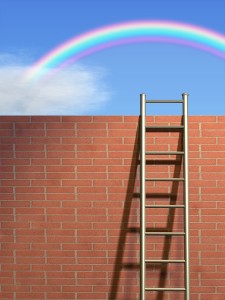Recovering from an eating disorder or disordered eating is really hard work. Unlike with addictions there is no abstinence model, and we have to learn how to eat properly and nurture our bodies despite how difficult this can seem. There are many things that can get in the way of our recovery including our relationships, work, money, major life events etc. Not all triggers are negative. In fact sometimes it is moments of genuine happiness that can cause us to slip into behaviors tha

t we k
now are not healthy.
One of the most helpful gifts you can give yourself if you are struggling is to be self-reflective. It is important to acknowledge the barriers that will get in the way of recovery or trigger you because if you can’t see or predictthem, then they have control over you instead of you over them. This does not mean that you won’t still be triggered but rather that you can be prepared for your set backs and take the necessary steps to set yourself up for success before, during and after.
Take some time to really think about which things impact you, when and where you are most exposed to such activities and what you feel you really need in order to move through it successfully. From there, set up an action plan of how you will respond in these situations and write it down on paper. Post this somewhere where you can easily access it -perhaps you keep it on your phone, or on your bedside table. In your time of need, when you are finding yourself struggling to keep your eating disorder at bay, take a moment to reflect on what you wrote and use it to soothe and protect yourself.
The more prepared you are for these events the more you can go out of your way to prevent them and to nurture yourself when they happen.
What are some of your biggest triggers? What do you think will soothe you in these moments? Write a comment below and let me know!



This is some really good information about how to deal with eating disorders. It is good to know that you need to acknowledge the barriers that come up when you are trying to overcome an eating disorder. It does seem like it would be smart to talk to an expert about ways you can get over it.